A number of central Maine residents took their Sunday to romp around area farms, despite sunny weather and, at times, adverse smells.
Hundreds of farms statewide participated in Open Farm Day, an annual event where visitors get the chance to explore local farms, sample locally grown food and interact with lovable farm animals. The day is coordinated by the Maine Department of Agriculture, Conservation and Forestry.
Misty Acres Alpaca Farm
Sidney’s Misty Acres Alpaca Farm anticipated more than 200 people would visit their property Sunday. Local residents were invited to the farm at 3071 West River Road to get up close and personal with the livestock and visit the general store that sells clothing and trinkets made from alpaca fur.
The Kurzynowski family from Saddle Brook, New Jersey, were some of the most eager patrons as they themselves are self-declared alpaca fanatics.
“We’re huge alpaca fans,” Nicky Kurzynowski said. “We’ve gone to quite a few alpaca farms back at home, and were actually adopting an alpaca.”
Nicky, who’s spent the last 33 summers visiting the Belgrade Lakes, said that, compared to other Open Farm Days her family has attended, Misty Acres had put on the best one.
“The farms that we’ve gone to in New Jersey are so crowded; the animals get overwhelmed,” Kurzynowski said. “Here, the alpacas have so much space to be free and run around. They just seem a lot happier here.”

The Kurzynowski family of Saddle Brook, New Jersey, looks at alpacas Sunday at Misty Acres Alpaca Farm. Morning Sentinel photo by Molly Shelly
Misty Acres has participated in Maine Open Farm Day for eight years.
Noel “Red” Laliberte, 71, was raised on a farm in Augusta and founded Misty Acres with his wife, Connie, 14 years ago after he decided to retire from the construction business.
“I owned my own drywall business for 30 years, and when I knew I was about to retire, I wanted to make sure I had something to do,” Laliberte said.
Misty Acres’ store sells a variety of clothing and plush toys made from alpaca fur that they import from Peru.
According to the Laliberte’s niece Tia Baldwin, the farm decided to shift to importing goods after a few years of making their own.
“We used to make all of the products ourselves, but with the demand increasing, we just couldn’t keep up,” Baldwin said. “We mostly buy things wholesale from Peru because the industry is just not in America yet. The way we’re doing it now is working pretty well for us though.”
Misty Acres started with just 12 alpacas; today they estimate to have more than 100.
And according to Laliberte, 2019 has been especially prosperous for them.
“We’ve sold around 40 alpacas this year. Just recently, we sold 20 to a woman in Winslow,” Laliberte said. “There were 10 baby alpacas born this year; it’s been really great for us.”
As for the future, Laliberte said he hopes to pass along Misty Acres to another trusted alpaca farmer when the time comes.
Misty Acres is open Monday through Friday from 10 a.m. to 4 p.m. More information can be found on their website, mistyacresalpaca.com.
Olde Haven Farm
Chelsea’s Olde Haven Farm saw dozens cycle through their Togus Road farm. Visitors were greeted by a number of ducks, including a few ducklings eagerly following their mothers. Owner Kelby Young, a former electrician from Colorado, said his family purchased the farm for a change of pace.
Young’s farm has a number of vegetable crops, as well as 20 ducks, more than 80 pigs and more than 60 sheep.
Olde Haven’s farm store is stocked with numerous varieties of homemade sausage, meat, unique preserves and other niche items, such as black garlic. Black garlic, which is sweet and smoky with only a small amount of the punch of traditional garlic, is made by keeping the garlic at about 170 degrees for about 300 hours. The product is a slightly gummy, jet-black garlic clove that can be used in a number of dishes.
Young said people don’t expect to see farms so close to Augusta, but he hopes that people who visit can see that locally-grown food is accessible for everybody.
“We want to show people that it’s OK to go to a farm and buy food,” Young said, adding that his farm store accepts EBT. “I just hope that people see that agriculture is not that far removed from where they’re at.”
Jen Campbell, of Litchfield, visited Olde Haven with her 10-year-old son, Steven. She said her son was enthralled by the sheep, who were happy to receive attention from visitors.
“He loved that they love him,” she laughed. “He got surrounded by sheep, and he didn’t know how to get out.”
Campbell said her family grows some of their own food, so it is important for her to show her kids farms that grow on a large scale and teach them the importance of agriculture.
Fuzzy Udder Creamery
Whitefield’s Fuzzy Udder Creamery was having trouble keeping their sample sheep and goat’s milk cheeses cool in the 85-degree heat. Owner Jessie Dowling said her farm is usually busier for fall events when people like to snuggle goats a little more than in the summer.
Dowling said the farm was holding its last Open Farm Day at the Whitefield location Sunday. She said the farm is in contract to move to Perry, a small Washington County town north of Eastport. She said the new farm will be much larger, and the creamery will be able to grow into it.
“I’m just bursting at the seams. I’m so ready for space,” she said of the new 92-acre property.

Nanne Kennedy, owner of Meadowcroft Farm in Washington, snuggles up with Boffin, a 7-year-old sheep, on Sunday. Hundreds of Maine farms were open on Sunday for the annual Open Farm Day. Kennebec Journal photo by Sam Shepherd
Meadowcroft Farm
Washington’s Meadowcroft Farm, run by Nanne Kennedy, is home to a unique breed of sheep found nowhere else on the North American continent. Polwarth sheep, she said, are an Australian breed that yields fine wool. She said average sheep yield 4 to 6 pounds of fleece, but Polwarths can yield between 20 to 25 pounds.
Her 120-acre farm includes an on-site shop that sells yarn and knitted apparel. She said she dyes the wool in seawater and uses no harmful chemicals during the process.
She said she had a rush of people in the morning, but around 1 p.m., the day was toning down and she was sitting in the shade with two of her six herding and guard dogs, Gilly and Annie.
Kennedy, who also sells lamb and mutton at area farmer’s markets, preached about wool’s ability as a “climate corrector.” She said wool is renewable and biodegradable, causes fewer emissions while being turned into textiles, and it helps keep people warm and cool, which reduces the need for additional heating or cooling costs.
“My whole quest at this point is to use sheep to turn back the carbon problem,” she said. “I want to leave my planet a little better than I found it.”
Kennedy said she was working on a registry in hopes to reseed the Polwarth sheep in North America.
Bob Pelletier, of Winthrop, said he and his wife usually take Sunday to go for a drive and decided to visit four farms. He said he began the day in Albion before heading to Meadowcroft. He said he was impressed by the variety of farms and their individual specialties.
“They’re all a little different in their own way,” he said.
Send questions/comments to the editors.



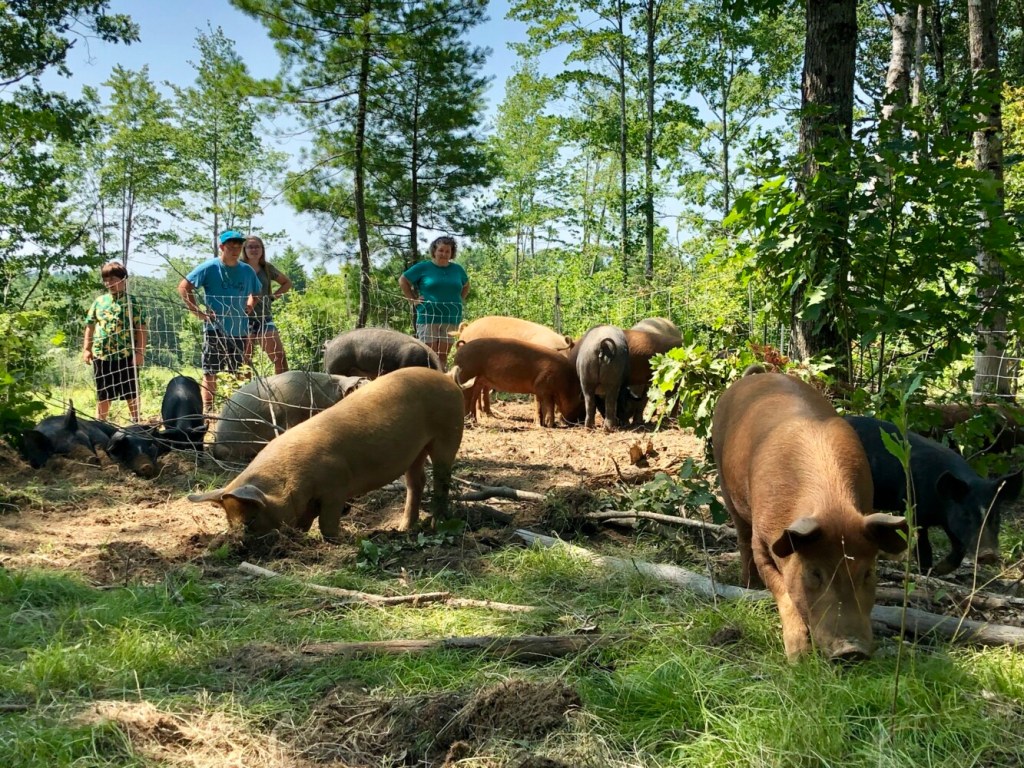
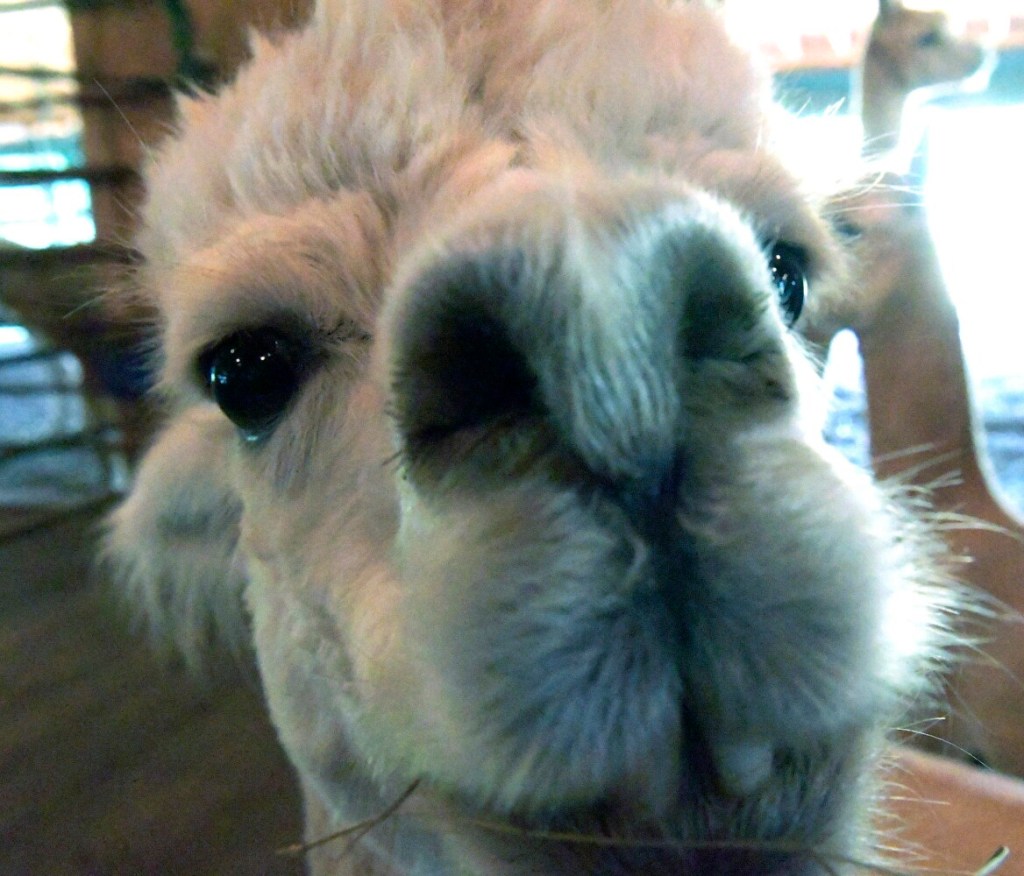
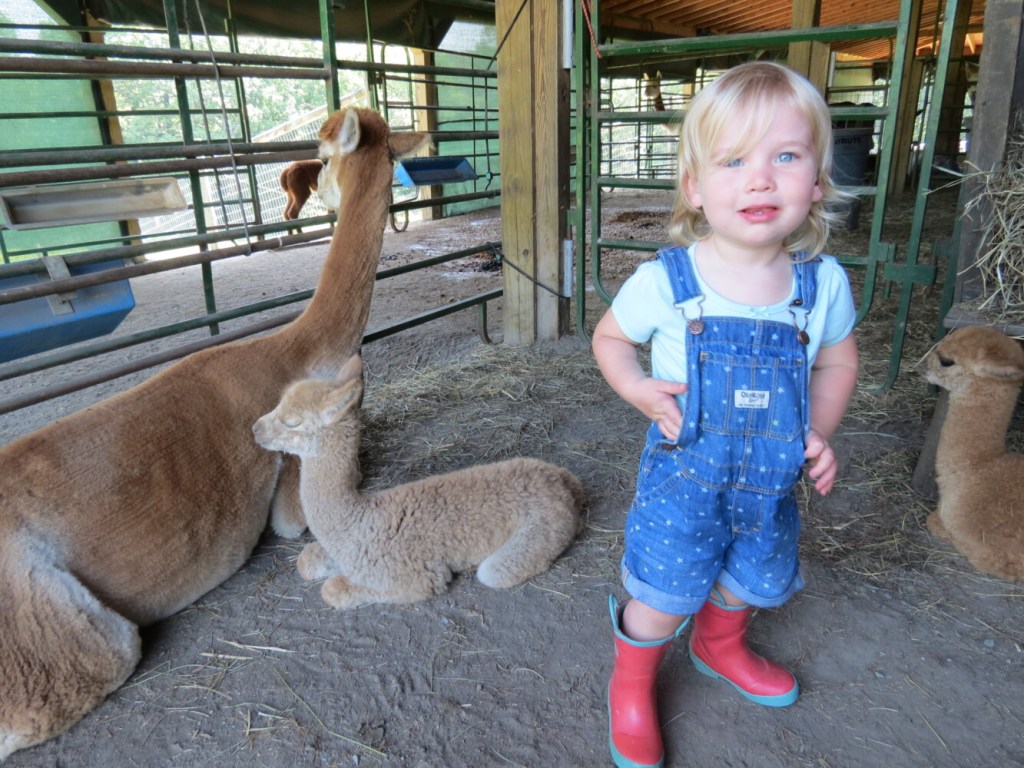
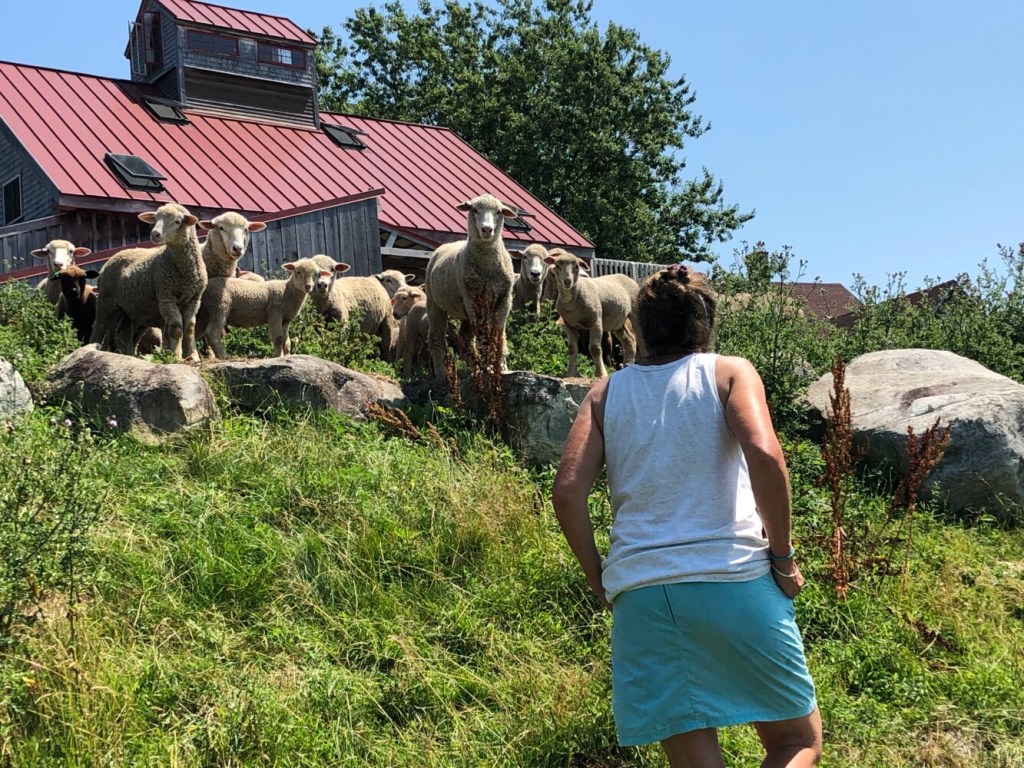
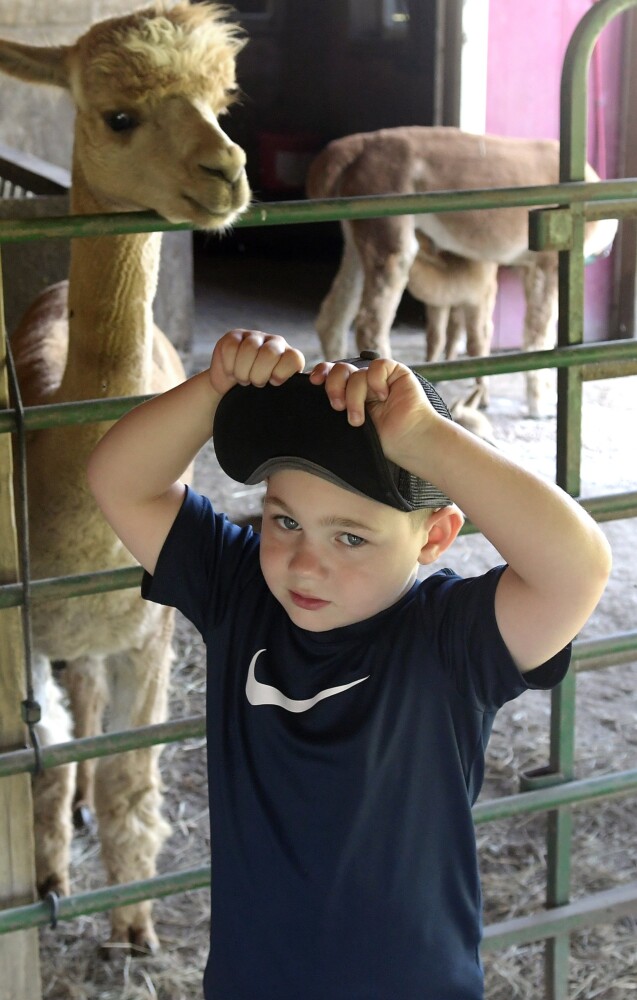
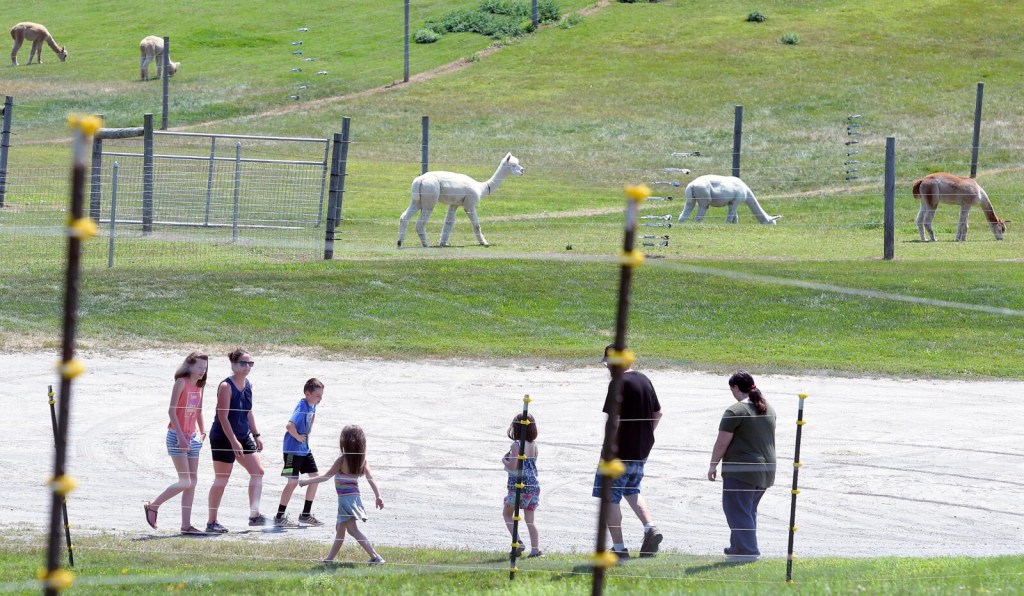

Success. Please wait for the page to reload. If the page does not reload within 5 seconds, please refresh the page.
Enter your email and password to access comments.
Hi, to comment on stories you must . This profile is in addition to your subscription and website login.
Already have a commenting profile? .
Invalid username/password.
Please check your email to confirm and complete your registration.
Only subscribers are eligible to post comments. Please subscribe or login first for digital access. Here’s why.
Use the form below to reset your password. When you've submitted your account email, we will send an email with a reset code.